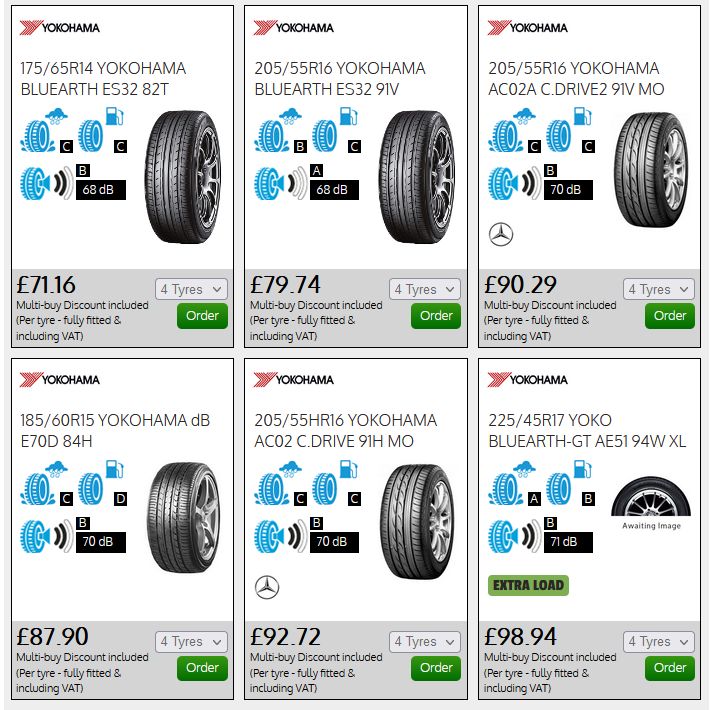Every so often, we like to profile tyre brands that we sell. This month it’s the turn of Japanese stalwarts Yokohama. Although we don’t currently provide a huge number of their tyres (compared to Goodyear, for example), it’s a brand we’ve been providing to our customers for many years.
So who is the Yokohama Rubber Company, what’s their history…and are their tyres any good?

Some of our Yokohama tyres, prices correct at time of writing.
See our full Yokohama selection.
How big is Yokohama and how are they doing?
Yokohama is a big, big company. In addition to their tyre business, they also make manufacturing products like conveyor belts, adhesives, aerospace parts and more. Then there’s an ATG segment dealing with monster tyres for industrial and agricultural vehicles. Oh, and they make sports goods too.
Globally, they employ around 27,000 people (for comparison, Toyo has about 11,000 and Goodyear 74,000). Last year their revenue was about £5.3 billion, up a whopping 28%. Nevertheless, their costs have also gone through the roof, so their income actually went down by about 29%. Bear in mind though that all tyre companies are under pressure at the moment due to a combination of world events.
A very short Yokohama history
Yokohama has been around for over a century. They got started on October 13th 1917, as a merger between Yokohama Cable Manufacturing and US company BF Goodrich – which had already been around for 47 years.
The company built their first factory in 1920 in — where else? — Yokohama, and then a second one in 1929. These used BF Goodrich manufacturing equipment, and tyres were sold in Japan under the BF Goodrich name until 1937.
In 1942, during the Japanese occupation of Singapore, they set up in that beleagured city. Back in Japan, two further Japanese factories followed within four years, and a sixth in 1964.
1969 saw Yokohama start up in the USA, and operations began in India in 2007. Recent history shows they are far from done with expansion as they acquired Trelleborg Wheel Systems in the company’s biggest takeover to date.
Yokohama goes green?
Like all tyre companies, Yokohama is currently pushing its green credentials. Their corporate website has no less than five pages devoted to planet-saving practices, and they’ve set themselves some ambitious targets and programmes. For example, their Forever Forest programme has been planting trees since 2007, a fair while before some other companies jumped on the bandwagon.
If you take a look at their zero emissions page, you’ll see they still have some way to go with things like water consumprion, energy usage and raw materials used. There doesn’t seem to have been much progress – although to be fair the stagnant figures might actually disguise an improvement if the company is expanding operations.
Are Yokohama tyres any good?
Bet you skipped down to this section!
Yokohama tyres fit into our premium category. Their tyre development and testing is backed by huge resources and they can exercise the sort of quality control you would expect from a major brand. The company has a long racing pedigree and that technological know-how will filter down to their mass market products.
Automoblog does a nice profile of their strengths, weaknesses and reviews – both positive and negative, giving them a thumbs up overall and a rating of 4 out of 5 stars. Bear in mind this is an American site though, so needs and expectations may be different.
In this Tyre Review comparison of summer tyres, Yokohama finished in the middle of the pack. The Geolander tyre did well in an all-terrain test, and was a recommended buy.
Overall, most users see Yokohama as a solid performer that does what it needs to!
The BK Tyres blog carries news, views and information on tyres and related subjects. BK Tyres supplies and fits tyres throughout South Oxfordshire, including the communities of Abingdon, Didcot and Henley on Thames. As an independent, family run mobile provider, we provide exceptional levels of service and affordable prices. Contact us today.

